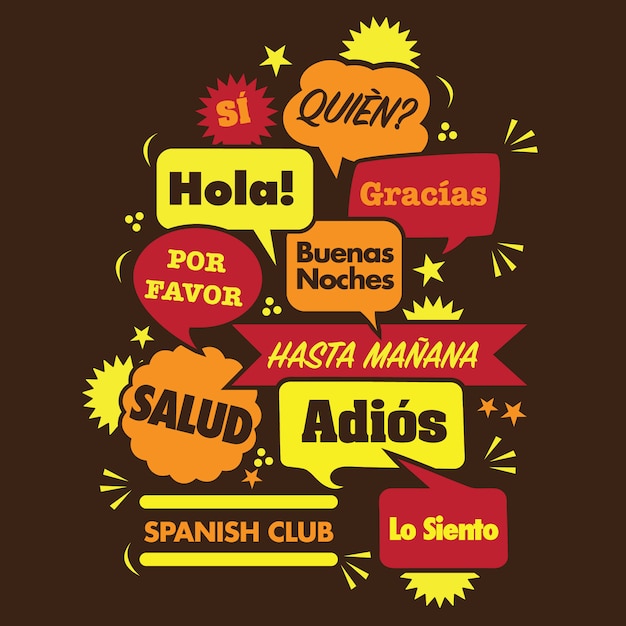What is the proper way to learn Spanish on your own
Whenever anyone says, “Wow! Your Spanish is so good! How did you learn?” I always say, “I taught myself.”Sure, I made sure that I had Spanish natives to talk to, picking their brains about grammar, vocabulary and local expressions whenever I could, and a few other means of language learning support.
There’s no getting away from the fact that it took a long time and a lot of personal dedication. Anyone who says you can learn a language in just a few months is lying. You might be able to find your way around a Spanish-speaking city while on vacation after a quick crash course in the classroom, but it won’t be enough to engage in fluid conversation, go for a job interview or even sing along to music without stumbling over the words.
Practise, check, correct, repeat!
Spend an hour a day on grammar exercises from a textbook
I set aside one hour at the end of every day to go through the exercises. Whenever I came across a section that troubled me, I’d keep going back to repeat the exercises until the grammar began to sink in. It’s also worth noting that I kept going back to this grammar book for reference well into my third year of living in Latin America. By that time I was really quite fluent, but little grammar doubts would pop up here and there when in conversation with friends.
Read, underline, look up new words and read again
Reading at home was, without a doubt, the single most useful activity I made time for in the early stages. I read anything I could get my hands on, but I loved reading novels by Paulo Coelho, translated from Portuguese to Spanish.
Why choose a Portuguese writer? Coelho’s writing is just so simple that it’s perfect for beginners. His sentences are short and easy to understand. His vocabulary is pretty basic too. For me, he was a perfect choice.
I loved to introduce fun elements every now and then!
Watch movies and TV shows with subtitles
The first is for beginners: watching Spanish movies with English subtitles.
The second is for advanced speakers: watching Spanish movies with Spanish subtitles.
It might seem odd to watch in Spanish and read in Spanish at the same time, but it really does work wonders. Reading skills develop a lot faster than listening skills. By reading and listening at the same time, I was really able to improve my pronunciation.
Listen to the radio in Spanish
Listening to the radio in Spanish is something you’ll find enjoyable after about two years of being fairly fluent. I found it impossible at first, but I recommend sticking with it. Understanding what someone says in a foreign language without seeing their lips can be tricky. I managed to fit in an hour and a half every day, listening to the radio on my phone when traveling to and from work in Buenos Aires.

Immersion anyone?
Travel to Spanish-speaking countries
Travel, travel and keep on travelling. I spent around seven years travelling to Spanish-speaking countries before I made the move to Venezuela and it gave me lots of confidence. I got better at sharing with locals and recognizing through context what they were trying to say to me. It was always a real buzz and kept me wanting to improve my language skills.
Spend time in Spanish-speaking environments
If you can’t travel abroad, travel to places in your home town where Spanish-speaking people hang out. Before leaving London, I used to go to a lot of salsa clubs, and I remember having a really great time.I’d also eat in Spanish restaurants, drink in Spanish cocktail bars and I even joined a Spanish conversation group at one point. It was a group organized by native Spanish speakers as a way of bridging the cultural gap between Londoners and foreigners who were living a long way from home.
Take-up initiatives
Volunteer for a long-term project in a Spanish-speaking country
Volunteering with children as a volunteer opened my eyes and ears to new expressions and natural vocabulary that I wouldn’t have had the chance to access otherwise.
Create a Spanish blog
The idea is to create a free, basic blog (Blogger and WordPress both have great platforms for this) and begin by adding an editor’s note explaining that you’ve set up this blog to help you improve your Spanish writing skills and to document your progress.
So that's the last on my list, but I am sure you could find more to suit your learning style
Take some online Spanish courses
A highly effective method for learning Spanish on your own is to take some online Spanish courses. Let’s face it; we pretty much travel with our laptops, tablets and phones at all times—which means that any online course will be at your disposal anytime, anywhere.
Learn conversational Spanish with a partner
Many of us do really well partnering up to learn. A language partner will help challenge you and make your language learning journey less solitary and more social! I was fortunate enough on my language journey to be surrounded by wonderful native Spanish speakers, but if that’s not your reality, specifically seeking out a language partner is the next best route.


